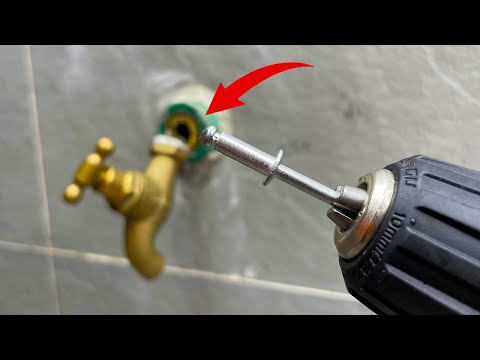Plumber Job Description and Salary: A Lucrative Career with Plumbing Skills

Plumber Job Description Template
A plumber is a skilled worker who specializes in installing and repairing plumbing systems. Their main responsibility is to ensure that water and drainage systems are functioning properly in residential, commercial, and industrial buildings. Plumbers work with various materials, such as pipes, fittings, valves, and fixtures, to assemble and install plumbing systems. One of the key tasks of a plumber is to read and interpret blueprints and technical drawings to determine the layout and specifications of plumbing systems. They must have a good understanding of building codes and regulations to ensure that their work complies with safety standards. Plumbers also need to have strong problem-solving skills to identify and fix issues such as leaks, clogs, or damaged pipes. In addition to installation and repair, plumbers also perform regular maintenance on plumbing systems to prevent future problems. They may inspect pipelines, test water pressure, and clean drains to keep the systems running efficiently. Plumbers often work in teams or collaborate with other construction professionals, such as electricians or HVAC technicians, to ensure that all systems work together seamlessly. Strong communication skills are also important for plumbers as they interact with clients to understand their plumbing needs and provide appropriate solutions. They should be able to explain complex plumbing issues in simple terms and provide cost estimates for their services. Overall, plumbers play a crucial role in maintaining the functionality and safety of plumbing systems, ensuring that clean water is delivered and wastewater is properly disposed of. Their expertise is essential in both residential and commercial settings.Plumber Responsibilities
Plumber Requirements
How Much Does A Plumber Make?
Plumber Salary
| Experience Level | Annual Salary |
|---|---|
| Entry-Level | $30,000 – $40,000 |
| Mid-Level | $40,000 – $60,000 |
| Senior-Level | $60,000 – $80,000 |
A plumber’s salary can vary based on their experience level. Entry-level plumbers can expect to earn an annual salary ranging from $30,000 to $40,000. As they gain more experience and expertise, mid-level plumbers can earn between $40,000 and $60,000 per year. Senior-level plumbers, who have extensive experience and often supervise projects, can earn a salary between $60,000 and $80,000 annually. It’s important to note that these figures can vary depending on factors such as location, certifications, and additional skills.
Plumber Salaries by Country
Top Paying Countries for Plumber
| Country | Average Annual Salary (USD) |
|---|---|
| Switzerland | 70,000 |
| Australia | 65,000 |
| United States | 50,000 |
| United Arab Emirates | 45,000 |
| Germany | 40,000 |
Plumbers in Switzerland earn the highest average annual salary of $70,000, followed by Australia with $65,000. In the United States, plumbers make an average of $50,000 per year. The United Arab Emirates and Germany also offer competitive salaries, with plumbers earning around $45,000 and $40,000 respectively. These figures indicate that plumbers in certain countries have the opportunity to earn higher wages compared to others. However, it is important to note that salary levels can vary depending on factors such as experience, qualifications, and demand for plumbing services in each country.
A video on the topic Plumber
Video Source : Tips UnknownInterview Questions for Plumber
1. What is your experience as a plumber?
I have been working as a plumber for 10 years. During this time, I have gained extensive experience in various plumbing tasks, including installation, maintenance, and repair.
2. What plumbing certifications do you hold?
I am a certified plumber with a valid license. I have completed all the necessary training and certifications required to work as a professional plumber.
3. How do you handle emergency plumbing situations?
When dealing with emergency plumbing situations, my first priority is to assess the situation quickly and accurately. I take immediate action to minimize any damage and ensure the safety of the residents. I am skilled at troubleshooting and finding fast solutions to resolve the issue.
4. How do you stay updated with the latest plumbing techniques and technologies?
I believe in continuous learning and staying updated with the latest plumbing techniques and technologies. I regularly attend workshops, seminars, and industry conferences to enhance my skills and knowledge. Additionally, I actively keep up with industry publications and online resources.
5. How do you ensure customer satisfaction?
Customer satisfaction is a top priority for me. I ensure that I communicate effectively with the customers, understanding their needs and expectations. I provide transparent pricing, quality workmanship, and excellent customer service. I also follow up after completing a job to ensure the customer is satisfied with the work.
6. Can you provide examples of complex plumbing projects you have successfully completed?
Yes, I have successfully completed several complex plumbing projects. One example is the installation of a new plumbing system in a commercial building. It involved coordinating with other contractors, working with blueprints, and ensuring compliance with building codes. Another example is fixing a major water leak in a residential property, which required extensive troubleshooting and repair work.
7. How do you handle difficult customers or challenging situations?
I believe in maintaining professionalism and keeping calm in difficult situations. I listen to the customer’s concerns and try to understand their perspective. I communicate effectively and provide clear explanations. If necessary, I involve a supervisor or manager to help resolve the issue amicably.
8. Do you have experience working in both residential and commercial plumbing?
Yes, I have experience working in both residential and commercial plumbing. I have worked on various projects, including single-family homes, apartment complexes, office buildings, and retail spaces.
9. How do you handle time management on multiple plumbing projects?
Time management is crucial when working on multiple plumbing projects. I prioritize tasks based on their urgency and importance. I create a schedule and ensure efficient use of resources. I communicate with clients and other team members to coordinate effectively and avoid delays.
10. How do you ensure safety during plumbing work?
I prioritize safety during all plumbing work. I follow proper safety protocols and use appropriate personal protective equipment (PPE). I am knowledgeable about building codes and regulations related to plumbing. I also ensure that the work area is clean and free from hazards.






